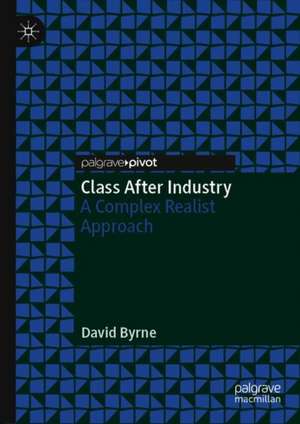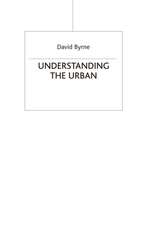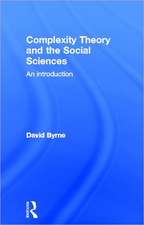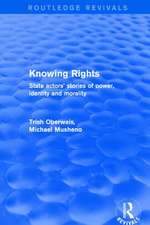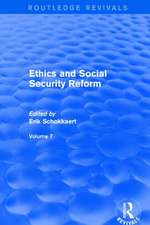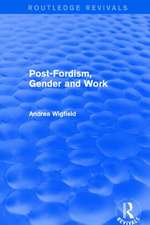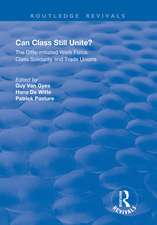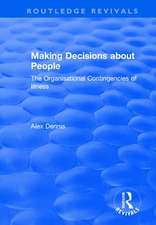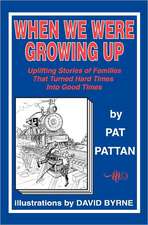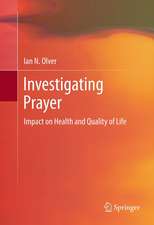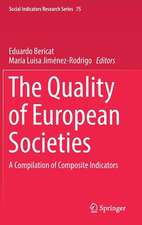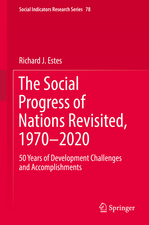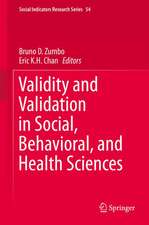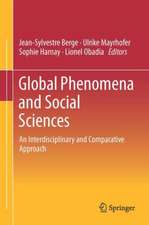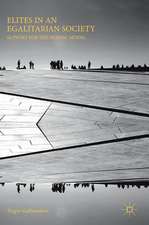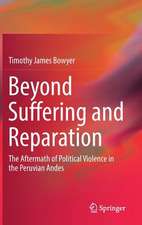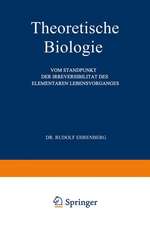Class After Industry: A Complex Realist Approach
Autor David Byrneen Limba Engleză Hardback – noi 2018
Preț: 396.82 lei
Nou
Puncte Express: 595
Preț estimativ în valută:
75.96€ • 82.53$ • 63.84£
75.96€ • 82.53$ • 63.84£
Carte disponibilă
Livrare economică 31 martie-14 aprilie
Livrare express 14-20 martie pentru 30.01 lei
Preluare comenzi: 021 569.72.76
Specificații
ISBN-13: 9783030026431
ISBN-10: 3030026434
Pagini: 136
Ilustrații: XIII, 136 p.
Dimensiuni: 148 x 210 x 15 mm
Greutate: 0.34 kg
Ediția:1st ed. 2019
Editura: Springer International Publishing
Colecția Palgrave Pivot
Locul publicării:Cham, Switzerland
ISBN-10: 3030026434
Pagini: 136
Ilustrații: XIII, 136 p.
Dimensiuni: 148 x 210 x 15 mm
Greutate: 0.34 kg
Ediția:1st ed. 2019
Editura: Springer International Publishing
Colecția Palgrave Pivot
Locul publicării:Cham, Switzerland
Cuprins
Chapter One: Introduction.- Chapter Two: A Complex Realist Take On Theorizing Class.- Chapter Three: After Industry and After the Welfare State.- Chapter Four: Class and Culture: The Dynamics of Cultural Change.- Chapter Five: How Class is Lived: The Dynamics of Lives and the Dynamic of Society.- Chapter Six: Class in Space.- Chapter Seven – Understanding How Class Is Lived and Acted in Post-Industrial Capitalism.- Chapter Eight: Conclusion: What Can Be Done.
Notă biografică
David Byrne is Emeritus Professor of Sociology at Durham University, UK. He has written on issues of inequality, methodology, and the complexity frame of reference. Books include Social Exclusion (2005), Applying Social Science (2011), Complexity Theory and the Social Sciences – The State of the Art (with Callaghan, 2014), and Paying for the Welfare State in the 21st Century (with Ruane, 2017).
Textul de pe ultima copertă
The transition to twenty-first century post-industrial capitalism from the ‘welfare’ industrial capitalism of the twentieth century, has affected the ways in which class is lived in terms of relational inequality and the factors that structure identity. Class After Industry takes a complex realist approach to the dynamics of individual lives, places, the social structure and analyses their significance in terms of class. A wide range of quantitative and qualitative studies are drawn on to explore how ‘life after industry’ shapes class, and the consequent potential for social change. The book will be of interest across the social sciences and beyond, to those concerned with how class forms might translate into political action.
Caracteristici
Brings together complexity, critical realism and place to form a fresh approach to understanding the dynamics of class structure and identities Brings industry back into the class debate Pursues a new analysis of the changing nature of capitalist society, in order to enliven and push forward thinking about social class
